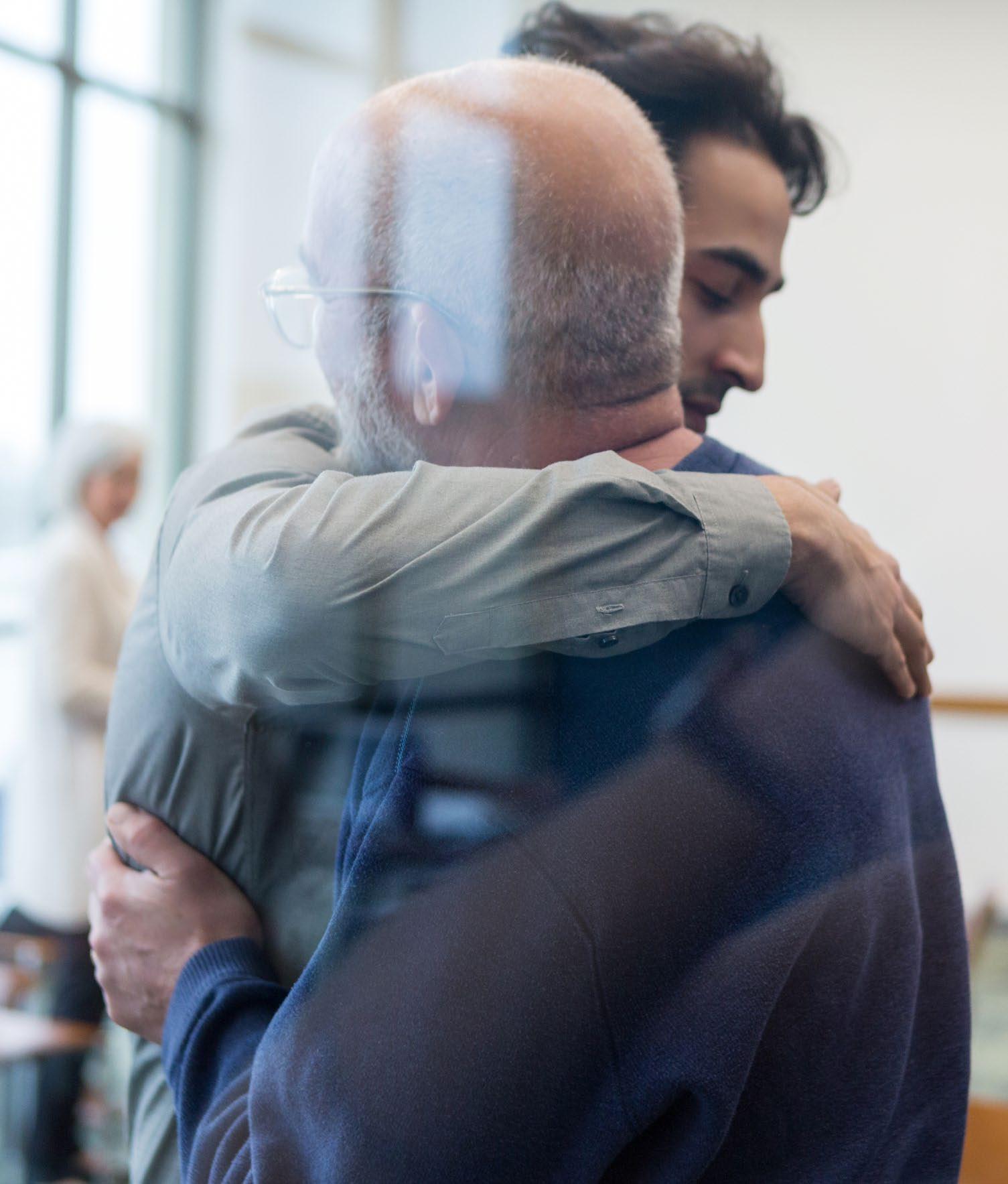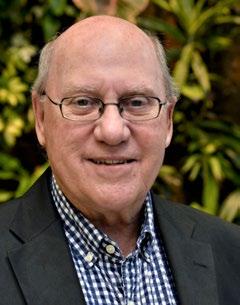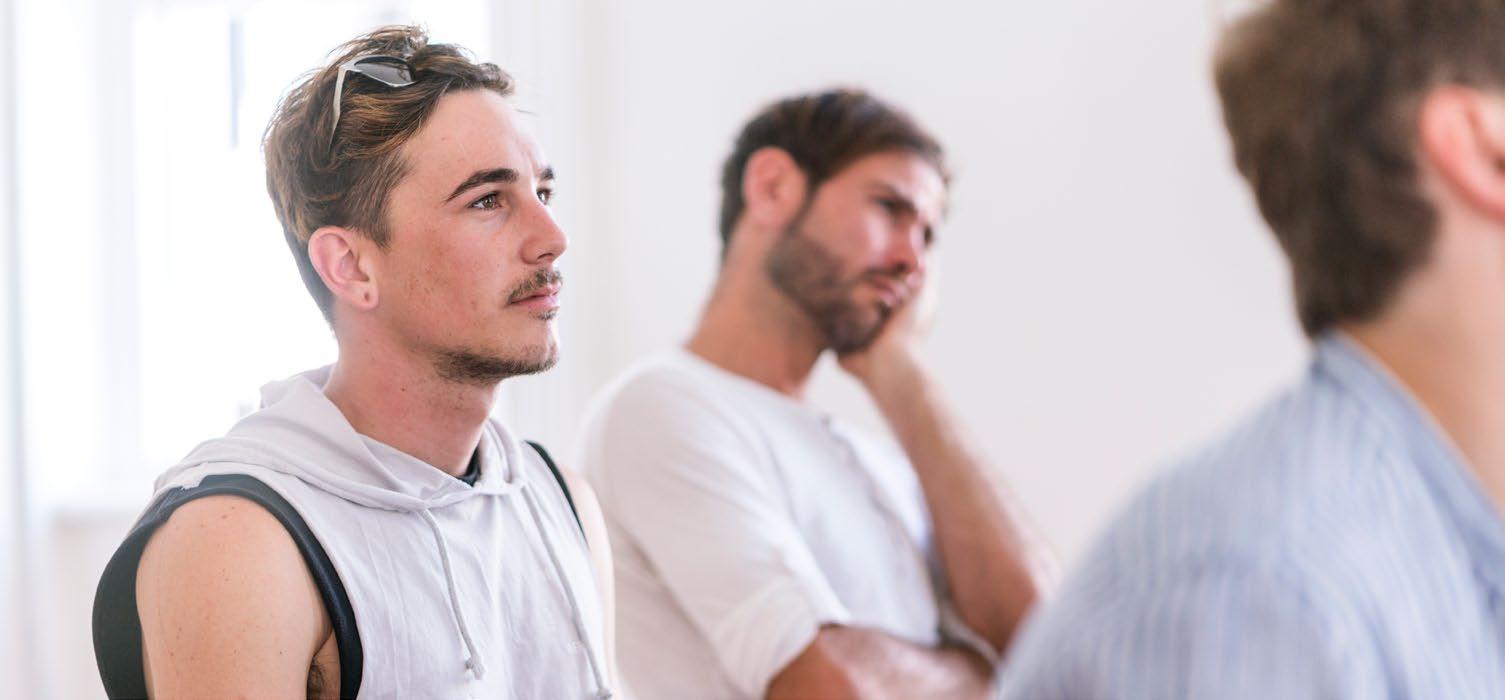
7 minute read
THE SIDEONE PROFILE
By Phyl Newbeck
A resident of Jericho, Vermont, Phyl Newbeck is a freelance writer for a variety of newspapers and magazines. She is the author of Virginia Hasn’t Always Been for Lovers: Interracial Marriage Bans and the Case of Richard and Mildred Loving.
Advertisement
The Reluctant Minister Harry Nigh: Using community to help stop ex-cons from reoffending
Rev. Harry Nigh’s journey to the pulpit was a circuitous one that started with a prison ministry. Although his father had been a minister, Nigh initially wasn’t interested in following in his footsteps. “I became a minister rather reluctantly,” he said. “I’ve always been a person of faith, but there is a difference between Christianity and religion. I love what Jesus represents but not always what the church represents.”

Nigh, who had begun working with offenders in the 1970s, was ordained in the 1990s. He became pastor of a Mennonite congregation in Hamilton, but eventually returned to ministering to those in the penal system. Along the way, he founded two organizations, Circles of Support and Accountability, and Friends of Dismas, both of which are designed to keep released prisoners from reoffending by creating a community to support them. Now 74, Nigh is retired from the ministry but certainly not from his faith.
Nigh’s odyssey began in 1973, when he was the first staff person hired for an organization called M2/W2, which describes itself as a restorative Christian ministry that helps volunteers connect with people in the prison system. “The program is similar to Big Brothers and Big Sisters,” Nigh said, “as it provides assistance to prisoners who have lost contact with their community support system.”
Years later, when Nigh was ministering to his Hamilton congregation, he received a call from a prison psychologist he knew regarding an inmate named Charlie. Nigh had worked with Charlie during his prison ministry days and had been troubled when the convicted pedophile reoffended after his release. Charlie was due to be released again, and the psychologist was worried about what would happen. He asked if Charlie could be placed at a Mennonite farm – that wasn’t feasible, so Nigh suggested creating a circle of support around the man.
“I had heard of this model being used for people with developmental disabilities,” Nigh said. “As they grew older, their parents wanted to ensure they had people around them who could provide community and assistance.”

Nigh assembled a group that came to be known as Charlie’s Angels. They found Charlie a place to live in Hamilton and became his surrogate family. Charlie had been in and out of prison four times. He had been taken off a drug that reduces sexual urges because it was causing other health issues, and the local police were convinced he would reoffend. “It became front-page news,” Nigh recalled, “and people wanted to know who was supporting him. There was a lot of publicity, but he didn’t reoffend.”
Three months later, a high-risk offender named Ray was released in Toronto; a similar circle was formed around him. Like Charlie, Ray never reoffended. “Our goal was to prevent recidivism and promote community,” Nigh pointed out.
The two cases became the foundation for Circles of Support and Accountability, created in 1994 with the motto: “No more victims; no one is disposable.” Today, CoSA Canada has almost 150 branches, with more in England and the Netherlands. “We never planned for it to be this big,” Nigh said. “We just wanted to help one guy and then one more, but it grew.”
The recidivism rate for CoSA members is considerably lower than for most released offenders, Nigh noted. “The whole idea is embracing people who are considered despised and dangerous, rather than trying to wall them off and exclude them. We, as a community, can be proactive and walk alongside them.”
A typical case has the core member with four to seven people in their inner circle. Those people have all been screened and trained. Outside them are the professionals who manage the circle, including psychologists, criminologists and police. Most exoffenders have conditions for their release, and the members of the circle have to understand those boundaries.
“It’s like a surrogate family,” Nigh said. “Almost all of the released offenders have lost contact with their families, and many have suffered significant abuse. We try to create a community that cares for them but also holds them accountable.”
Most of the offenders in these circles are men and many have offended sexually, often against children. Some ask to be part of a circle; others may be referred by their parole officers. The ex-offender has to be willing to make full disclosure of their offences, and of their plans. “Isolation kills,” Nigh said. “For these guys it can be very dangerous, both for them and for the people they might hurt.”
In 2003, Nigh left the pulpit to return to prison work as the Community Chaplain for Corrections Canada in Toronto, recognizing that the job of a prison chaplain often morphs into social work. From his office at a halfway house in the community, Nigh decided to try to create a fellowship where exprisoners and volunteers could come together.
Entering prison is an elaborate routine, Nigh explained. “You go from arrest to detainment, court, denunciation, and then incarceration,” he said, “but there is no ritual of release or celebration of their return as citizens.”
He referred to these new groups as Friends of Dismas Fellowships, after the Bible story of the Good Thief who was one of two theives crucified next to Jesus. “That story tells us there is no judgment; only acceptance,” Nigh said.
Nigh persuaded a local church to allow a group to meet, and what started with a dozen people soon became 120. The project then spread to several cities in meetings that are inspired by the principles of Alcoholics Anonymous.
“We have a format, a structure, and values,” Nigh said. “It’s basically a place where people can come in and know that they are home, people will care about them, and they are safe.”
Participants sit in a circle to eat, sing, and share their stories. “Some of the best singing you’ll ever hear is in a prison chapel,” Nigh added. “Our meetings are like a church meal, but we’re also connecting and celebrating.”
Dismas Fellowship volunteers are trained with the goal of giving ex-offenders a place to belong. “We let people show their goodness and God-given humanity,” Nigh said.
Unfortunately, Covid-19 restrictions have forced the
meetings to go virtual, but Nigh said he was pleased that recently 75 people convened via Zoom. “It’s a community of hope,” he said.
Dismas takes no government money, but it has recently grown large enough to hire a part-time staff person. One current goal is to provide housing for ex-offenders though a program known as Restorative Justice Housing. Nigh described support for exoffenders as a three-legged stool featuring a safe place to stay, meaningful work or activity, and friendship. Through Restorative Justice Housing, Dismas has managed to find one residence for four ex-prisoners and another to house two more. “It may be a small thing,” he said, “but it’s meaningful.”
Nigh said he was often awestruck by the grace that can happen in the world, but he is also concerned.
“I worry that we will never get rid of the oppressive systems that divide and enslave people,” he said. “There is a lot of anger, hatred, and divisiveness, and the evil that makes people see ‘others.’ People of faith and love are called to try to create and build models that are counterculture and show another way of doing things other than resorting to control, labelling and oppression. We need to embrace, rather than exclude.”

The thread that connects Nigh’s activities is the goal of bringing fragmented people together. “I don’t take credit for it,” he said. “You start something and then someone else sees possibilities.”
Nigh recalled a man who came up to him last year at a dinner in British Columbia and thanked him for saving his life. “I’d never met him before,” he said. “It wasn’t me, of course, but the volunteers in the circles.”
For Nigh, those volunteers are the true heroes.
“It’s great to see others pick up the ball and run with it,” he said. “It’s wonderful to be part of something way bigger than yourself.”









